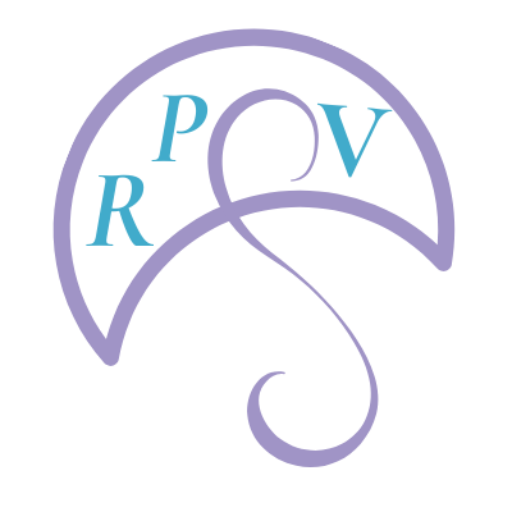Benefit Your Career by Seeking Out Addiction Treatment Early
- August 5, 2021
- Information @ RPSV
- No Comments

Most executives live high pressure existences with challenges coming from all sides―financial, personnel management, hectic schedules, a myriad of appointments, quarterly and monthly reports, possible travel – it’s not easy for them to catch their breath. In addition, there may be demands from family. It’s not hard to understand why some executives take refuge in the numbness of drug or alcohol use. Along the way, however his or her work is likely to start suffering.
Business professionals experience some of the highest amounts of work-related stress daily. This leads to a number of negative physical and mental conditions and can also lead to an increased chance of substance abuse. If you are a business professional or executive looking for help with your addiction, you may think that it can be difficult to find help and healing without sacrificing your career. Fortunately, there are several avenues you can take to step onto the road to recovery. Recovery Program Solutions of Virginia (RPSV) offers the following guidance on how you can get started.
Know the Reasons Behind Your Addiction
In order to treat your addiction, it can be helpful to know why you’re addicted. High-ranking jobs often lead to drug or alcohol abuse because of constant stress, as well as the general public expectation that an executive manages to have everything under control. The social pressure to have a drink after work can contribute to alcoholism, while fast-paced environments, difficult or volatile jobs, and a general lack of coping skills can help lead to drug use to stay alert throughout the workday.
A couple of drinks after work turns into a nightly activity or maybe it’s painkillers prescribed by a doctor after a mishap. While these or other substances make stress and problems fade away, occasional indulgences can become dependence. It might not be very long until he or she begins to structure life around making sure the drugs are nearby to help one cope.
How to Know When the Time Is Right to Seek Help
The first thing you may be questioning is when to seek help. This can be difficult, as people tend to have very individual reactions to sustained drug or alcohol use. In general, you should seek help when your addiction becomes overpowering. According to substance abuse researchers, the mind eventually transitions from seeing a hit as a means to an end (i.e., using a particular drug to feel high or drinking alcohol to come down from the day) to habitually desiring the drug itself. When this happens, merely seeing drug paraphernalia or drug references can trigger your need for a hit. Additionally, if your substance abuse begins to interfere with your professional, social, or familial obligations, it may be time to seek help. Many people decide to forgo treatment because they have hit rock bottom or they simply don’t think their problem is bad enough. The truth of the matter is―if you’re questioning whether you need help getting sober, you likely do.
Heal Your Body with Healthy Meals and Daily Exercise
As you begin the recovery process, you can assist your medical advisors by adopting a healthier way of eating and a regular exercise routine. Both healthy eating and physical fitness can start the healing process, allowing your body and mind to begin to rebuild themselves from the negative effects of an addiction. Regular, healthy meals improve your digestive system, while exercise helps your cardiovascular system and reduces stress. Together, they both can lead to improved sleep and an overall elevated mood.
Seeking Treatment While Keeping Your Career Intact
You may be concerned with how seeking help for your addiction will affect your career. Consider, though, how letting your addiction go untreated will affect not only your career but the rest of your life. Addiction can break apart your physical and mental health, your family, and your self-esteem. Seeking help is one of the best decisions you can make. If you do not wish to broadcast the fact that you are seeking treatment for an addiction, simply tell your employer you are taking a medical leave of absence. Details are generally not required, and most people will remain polite enough to not ask prying questions. Not only are there treatment centers designed to suit your budget, insurance compatibility, and location, but there are also centers specifically prepared for recovering executives and professionals. The doctors and psychologists there will understand your needs and can help you deal with your addiction on top of your job duties in a healthy way.
Look to the Future to Build Motivation
A better future is the light at the end of the tunnel when you’re in recovery. To achieve sobriety so that you can re-enter the world as your best self is the ultimate goal but setting additional goals can offer a renewed sense of purpose. This could be running your first 5K, learning to paint―or perhaps you’re ready for a career change or to return to school for an advanced degree. This type of long-term goal sets the stage for accountability that will keep you in check, as well as a milestone to reach that can benefit you emotionally and financially. You’ll come out on the other side with a wealth of knowledge and new career opportunities.
Remember, if you are a business professional or executive currently suffering in silence from addiction, the best thing you can do for your career is to seek out help. Once you return to work, keep in mind what led to your addiction initially and alter your habits to prevent a relapse and improve your everyday state of mind.
You can do it! If you need help, RPSV can help. Recovery is possible. Just reach out. Rpsva.org . (800) 374-4198
Blog by guest blogger Amy Collett from bizwell.org
Want to be an RPSV guest blogger? Email [email protected] for more information today.

